VC Nawangwe Launches CoCIS Endowment Fund to Support Excellence in Education, Research and Innovation
The College of Computing and Information Sciences (CoCIS) on Friday 15th August, 2025 launched a permanent endowment fund to provide sustainable, long-term support across three critical pillars: enhancing student opportunities through scholarships and bursaries, accelerating groundbreaking research endeavors, and catalyzing innovation within the college.
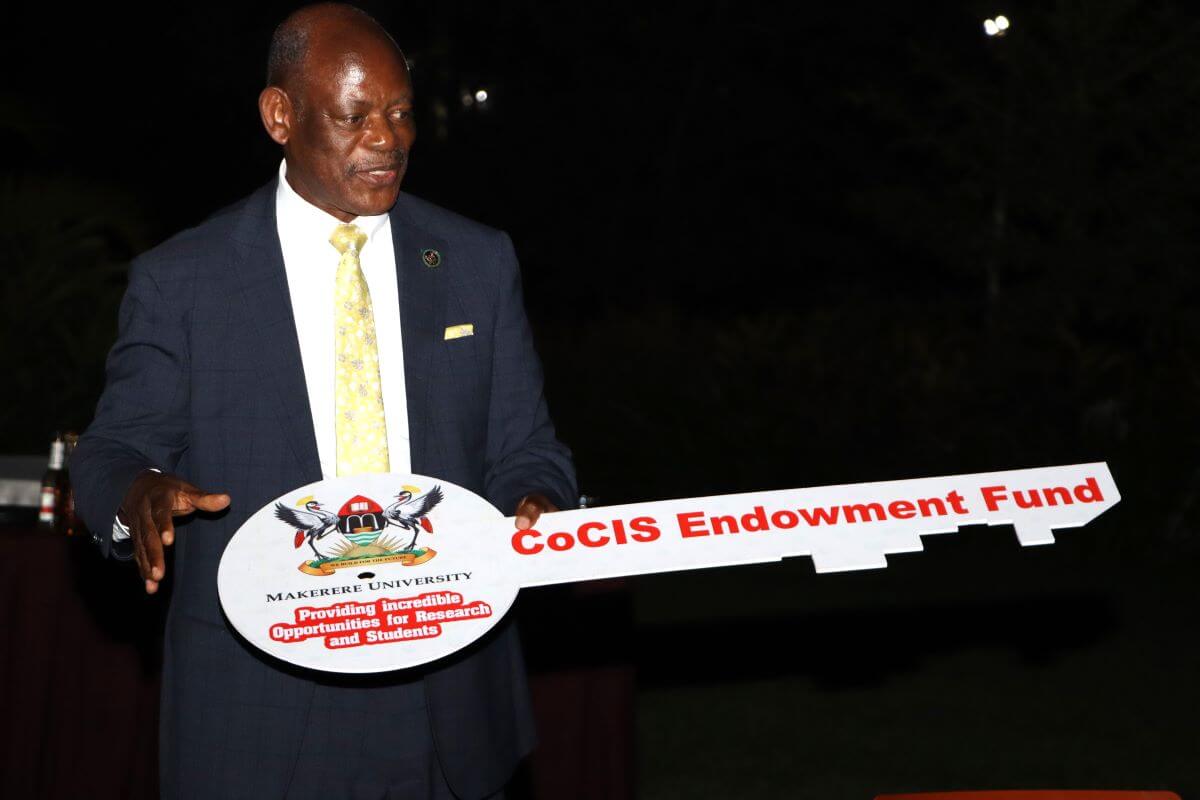
The goal is to ensure a continuous stream of resources, enabling the college to attract top talent, invest in cutting-edge facilities, and remain at the forefront of technological advancement and academic leadership for generations to come.
The CoCIS Endowment Fund was officially launched by Professor Barnabas Nawangwe, Vice Chancellor of Makerere University on day two of the staff retreat (14th -16th , August 2025) held at the Source of the Nile Hotel in Jinja City.
Three Top Most Contributing Researchers to the Fund Honored
The Principal and his Deputy presented the CoCIS Research Excellence Awards to Dr. Rose Nakasi, Dr. Joyce Nakatumba Nabende and Prof. Engineer Bainomugisha as the most outstanding researchers who have contributed to the College Endowment Fund. The trio have successfully written research winning proposals and attracted a number of grants boosting the college resource envelop from which the endowment fund is drawn.
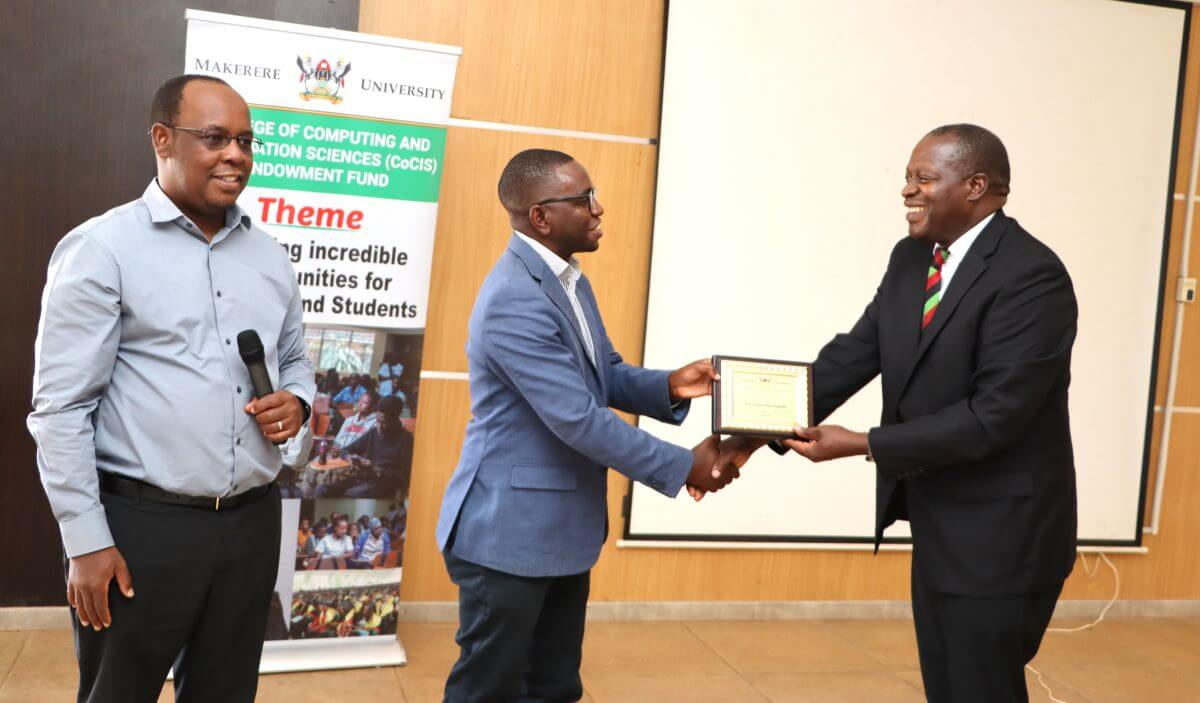
18 students to benefit annually
This endowment fund will ensure that resources are strategically allocated to maximize impact on the colleges’ educational and research objectives.
This planned college endownment fund is motivated by the need to promote early- career faculty research and support high-pontential students. Over time, the college leadership has observed that a significant and increasing number of CoCIS students struggle to pay tuition fees. Investing in these talented individuals will yield substantial returns for both the students and the institution.
The college endowment initiative will support 18 students annually through four scholarship tiers;- 1 student ($2000 full scholarship); 2 students( $1,500 each substantial support); 5 students( $1,000 moderate support); and 10 students($ 500 each foundational support).
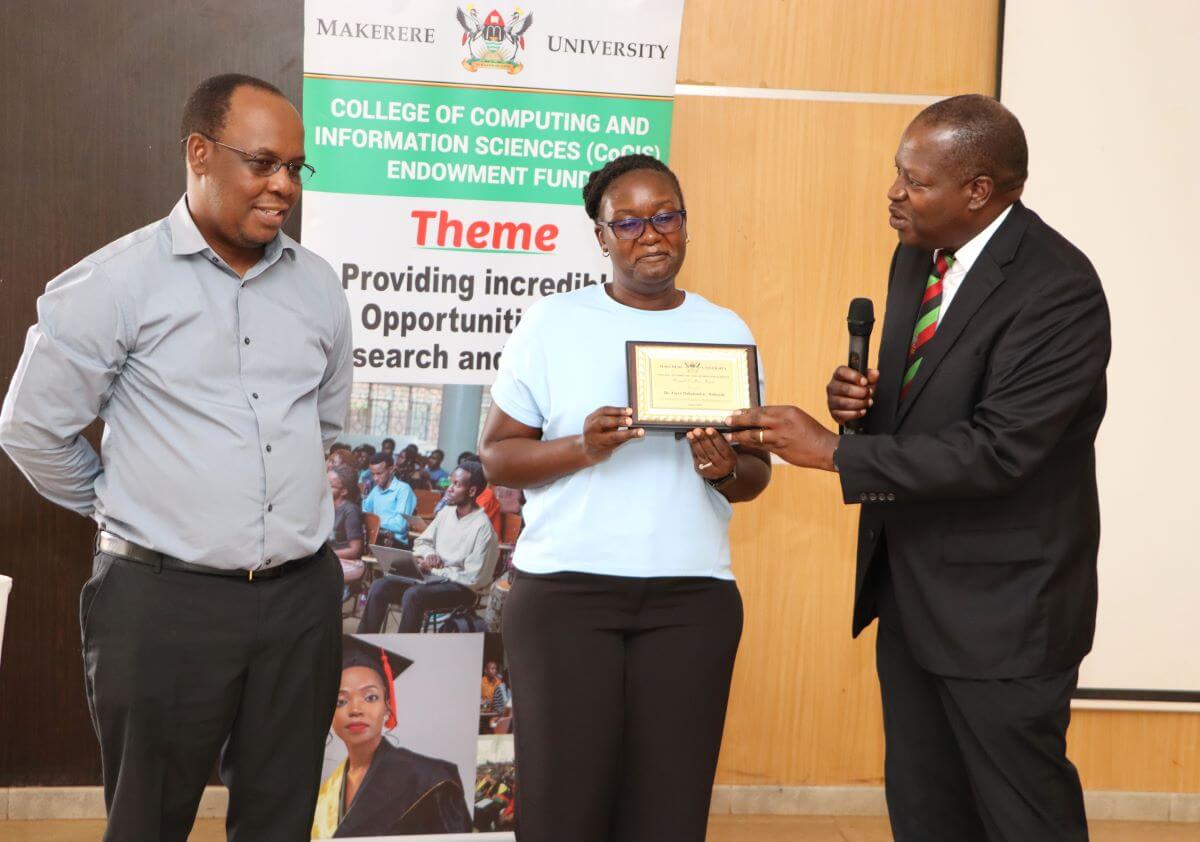
The Annual investment ($15,000 total ) will provide transformative opportunities for students from low socio-economic backgrounds to secure their academic future and career success.
Students on standard programs mainly second year or third year students from the college undergraduate programmes; software engineering –third year or fourth year students will be eligible. All beneficiaries must maintain good academic standing with a minimum of a CGPA of 3.6 throughout their sponsorship period.
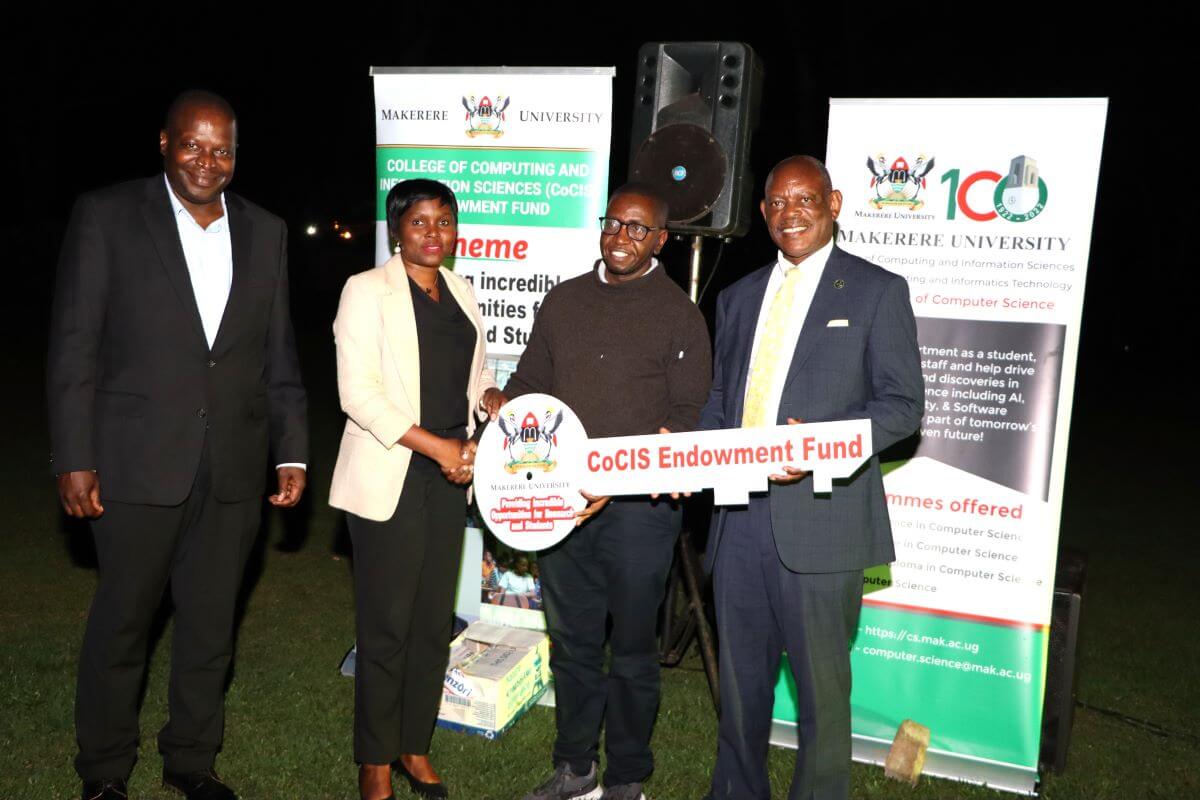
Research and Innovation
In terms of research and innovation, the college is the region’s premier computer, library and information science hub for ICT innovation and research. Faculty conducts research in Artificial intelligence and data science, software systems, networked systems and their security, the impact of digital technology on records management in libraries, museums, archives and learning. Others are in policy and information seeking behavior in health, agriculture, ICT, land, law and finance among others.
VC Unveils the vision for the University Financial independence
While officially launched the Fund, Prof. Nawangwe unveiled the strategic vision for the university’s financial independence and future innovation. He conveyed the significance of endowment funds, observing that institutions like Harvard possess an endowment bigger than Uganda’s GDP, granting them the capacity to act freely. He presented this model as ‘the way to go even for us’, confirming that the university council approved colleges establishing their own endowments, to be managed alongside the main university fund.
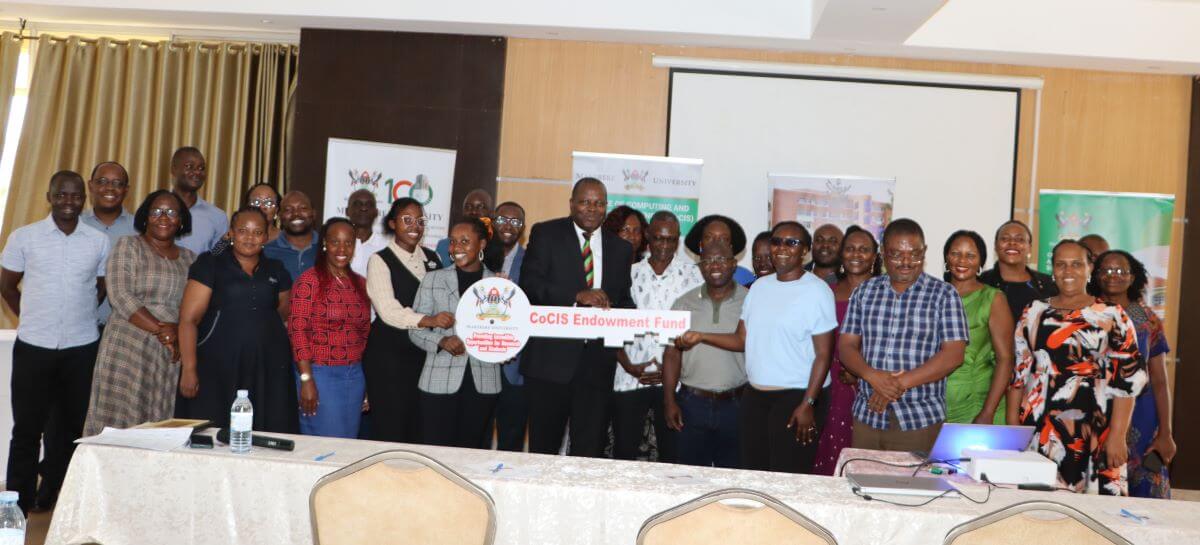
The Vice Chancellor expressed considerable encouragement for CoCIS, particularly learning that it is funding the endowment from the proceeds of the research funding that they receive, and commending its initiative in already touching students by giving out funds.
He then turned to the imperative of Artificial Intelligence, a field he believes is where now the world is going forever. Recalling a UNESCO conference, he shared a touching question posed to African leaders: As far as AI is concerned, will Africa be left behind again? This query he said deeply impacted him, driving the university’s commitment to promote digitalization, promote anybody, any attempt to enhance our capacity in digitalization, computing, in artificial intelligence.
For Africa to develop, Nawangwe argued, the focus should not be on competing globally but on using AI to solve own problems and move people out of poverty. He lauded CoCIS for its amazing work, especially in leveraging AI for health solutions, and for its potential to foster millionaires among its students.
The Vice Chancellor also conveyed the university’s commitment to research and innovation as essential for national stability and poverty alleviation. He cautioned that failure to create jobs through innovation could lead to very unstable countries in Africa, with multitudes of children in the streets.
He projected the university’s dedication to a new Science and Technology Center and noted that the forthcoming Science and Graduate Training building will dedicate its entire ground floor to innovation, even suggesting repurposing lecture rooms as innovation is much more important.
He argued CoCIS’ leadership to do more with that background, knowing that ‘we must do it to save our country, to save our continent.’
In his address, Prof. Tony Oyana, Principal College of Computing and Information Sciences, (CoCIS) discussed the establishment of an endowment fund to support students, research, and innovation. The fund is designed to provide opportunities for students to excel and bridge the gap left by limited government funding.
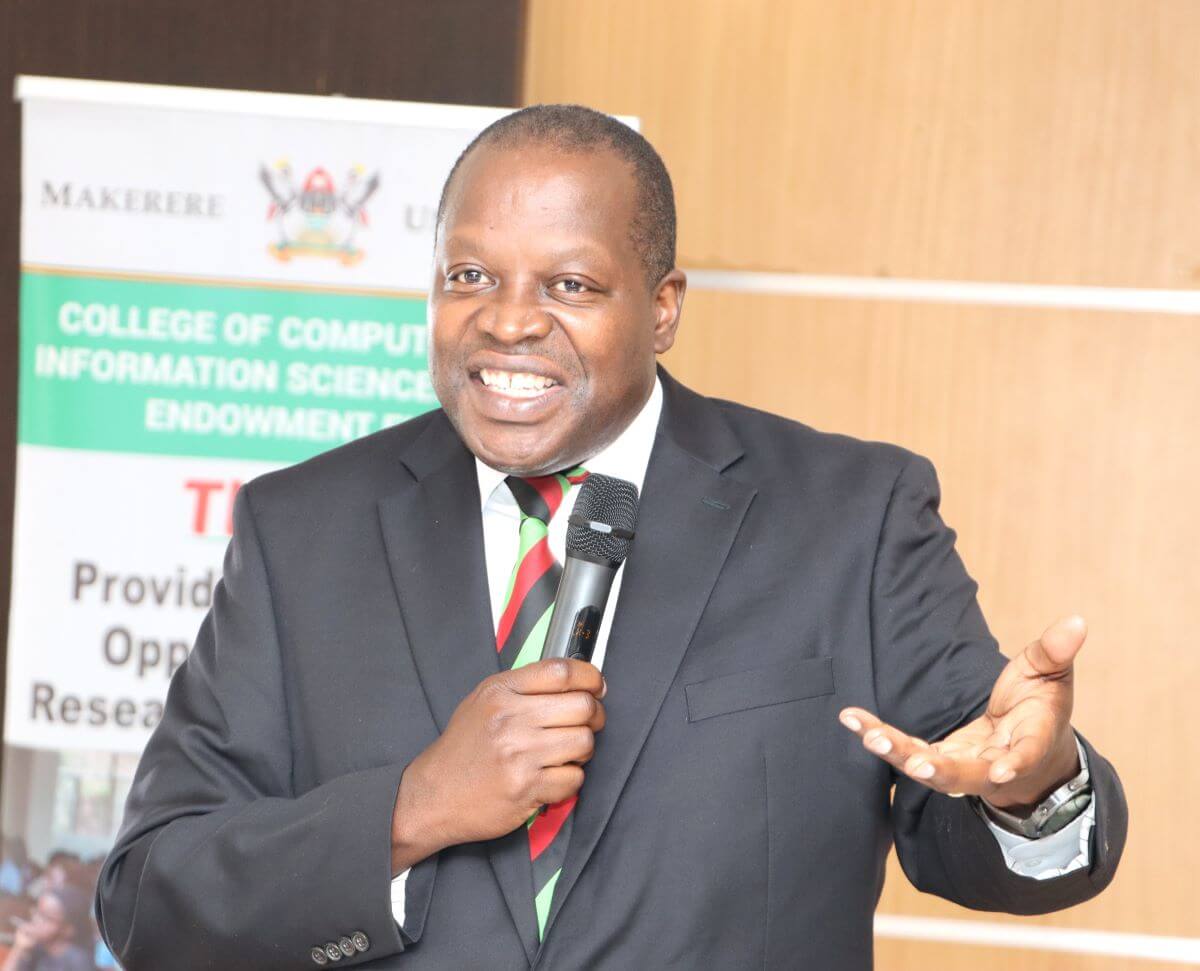
Professor Oyana shared his personal journey, showcasing the role of scholarships and foundation endowments in his education. He inked the importance of investing in students, citing their potential to excel with support. According to him, students, especially those who are talented but lack resources, can make significant progress with even a small amount of support.
The endowment fund will align with the university’s mission and strategic objectives, focusing on education, research, and innovation. He noted that research-led initiatives can make the college stand out in the world and attract people seeking expertise.
The college has invested in treasury bonds and is exploring other investment opportunities, such as Unitrust. Professor Oyana encouraged colleagues to invest their monthly money in bonds and trust, citing the benefits of diversifying investments.
He acknowledged the challenges the college faces in relying solely on government funding, which can be unpredictable and subject to change. The endowment fund will provide a stable source of funding, enabling the college to pursue its goals and make a meaningful impact.
He expressed gratitude to Eako for sponsoring the meeting and Google for investing in the college’s state-of-the-art laboratory.
On his part, Mr. Emmanuel Kitamirike, the Makerere University Endowment Fund Administrator revealed that the Fund has a rich history dating back to the 1930s when teachers and church leaders donated money, which was invested in the UK for 70 years before being formalized in 2014.
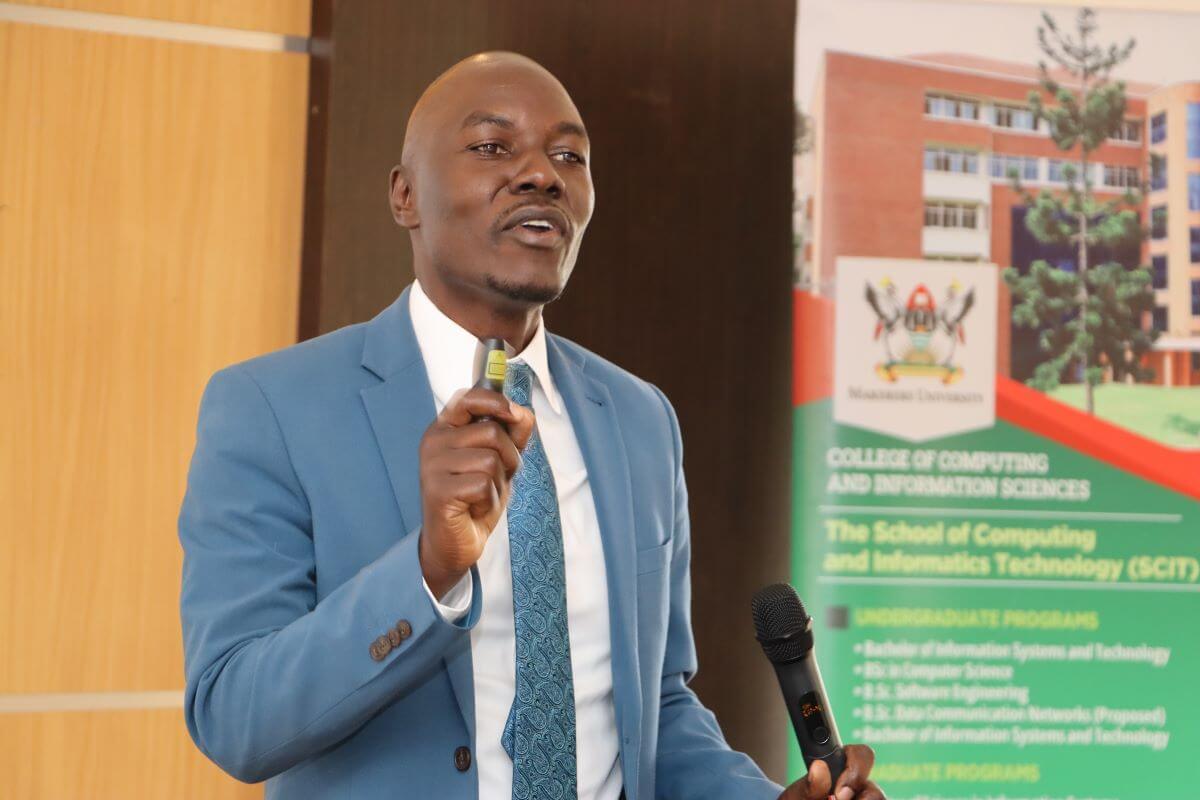
“The fund has grown from Shs8.6 billion to Shs14 billion, with a target of reaching Shs20 billion by the end of the financial year. This is attributed the growth to strategic investments in treasury bonds and Unit trusts, which have yielded returns supporting university activities. We’ve reinvested 65 million in Treasury bonds and reinvested 138 million in Unit trusts of the money that we earned,” he said.
The university has secured funding from the United Arab Emirates, $100,000, to establish the Endowment Fund for the Advancement of Women Education, which will support female students pursuing postgraduate STEM disciplines. Kitamirike noted that “if you have $1 million and you have 15% return on investment, you have some almost 500 million that you can put up every year for scholarship support.”
The fund’s administrators have implemented the Mak Advance System, an alumni management software that enables donations with as little as Shs1,000. Mr. Kitamirike reported that donations have been coming in, and has received 40 million in the last two years through that system.
The fund’s growth is expected to enhance student life experiences and encourage alumni to give back to the institution.
The university’s endowment fund model is inspired by institutions like Harvard, which has a massive endowment fund where by its Alumni definitely sometimes even give an estate, hey have their money.
The College has been actively promoting research and innovation through its RISE Program, which focuses on research, innovations, services, and engagement. Dr. John Ngubiri reported that the program has disbursed approximately 540 million in grants, with 90% going to staff and 10% to students. The funding distribution is skewed in favor of the School of Computing and Informatics Technology (SCIT), with few grants received from EASLIS
The most popular research areas include intelligent systems, particularly AI, health and nutrition, smart teaching, and small businesses. Dr. Ngubiri noted they’ve had very many applications from the area of AI, indicating a growing interest in the field. The program has yielded impressive outcomes, including research projects expanding into bigger grants, startups emerging from student projects, and students receiving awards.
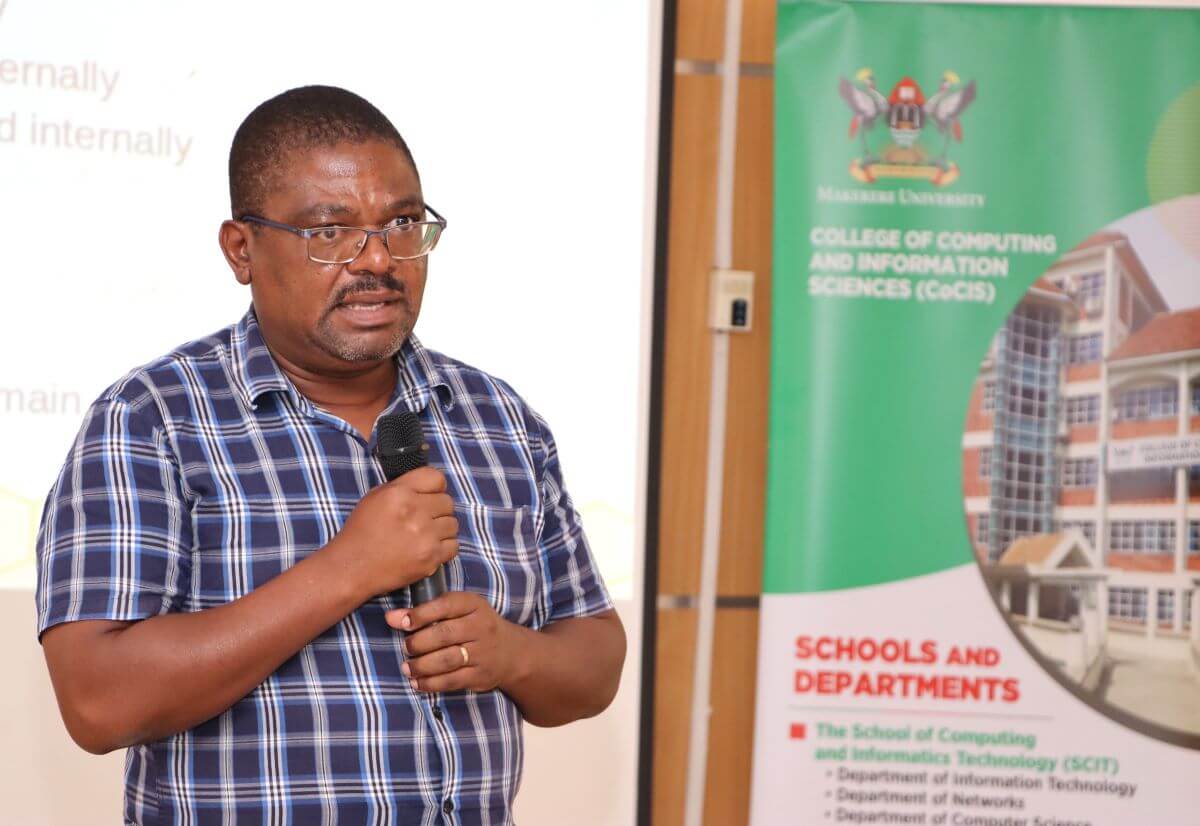
Some notable examples of staff who have implemented projects include Dr. Rehema Baguma, Dr. Odongo Steven, and Dr. Hasifah Namatovu, who were able to expand their research into bigger grants. Startups like YoWaste and MobiFuel have also emerged from student projects, demonstrating the potential for innovation and entrepreneurship. YoWaste alone has reportedly generated a turnover of around 600 million.
Despite the progress, Dr. Ngubiri noted some challenges, including limited funding, plagiarism, gradualism, and the finalist student problem. He noted, the volume of funding is always a challenge, and that they have to live within it. To address these challenges, He suggested adopting a thematic approach to grants, formalizing startups, and exploring equity options to provide a sustainable source of funding.
The college could get shares in startups and use the returns to fund other projects. Dr. Ngubiri also emphasized the importance of looking ahead and planning for the future, saying “if when someone is writing a seed, he looks ahead on where this seed can be put to germinate so that people don’t get stuck along the way.”
While discussing the research agenda for the School of Computing and Informatics Technology, the Dean Dr. Joseph Kibombo Balikuddembe stressed that the research should be internationally recognized and address real-world societal and business challenges. “Our research is internationally recognized and addresses real-world society and business challenges,” he said, citing an example of engineers being able to tell the air quality of different cities.
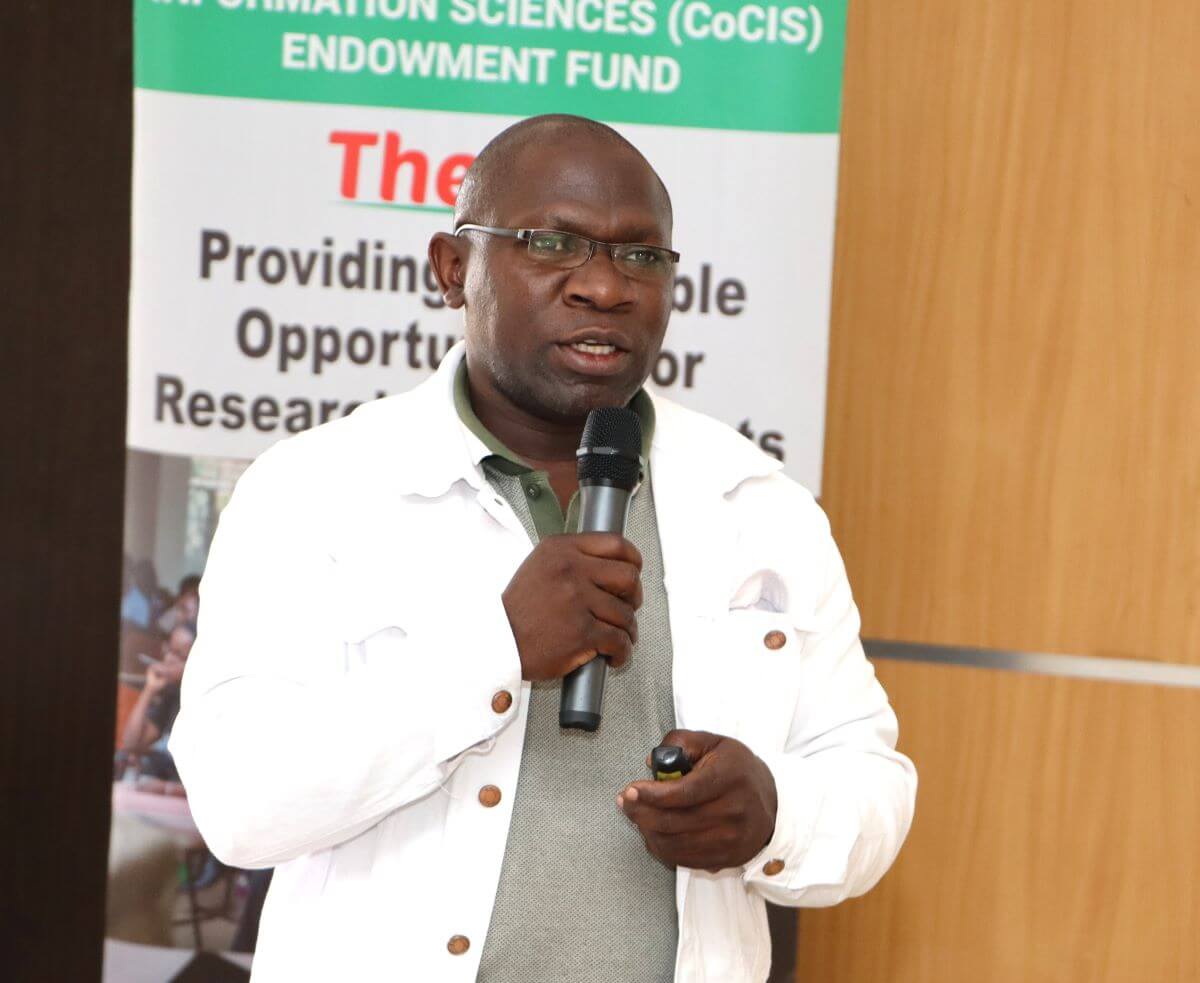
Dr. Balikuddembe emphasised the importance of being centers of knowledge, innovation, leadership, and development, and positioning the school to lead the digital transformation and contribute to the global innovation ecosystem.
He also expressed the need for specific strategic objectives, including advancing cutting-edge research in AI, data science, and related fields, promoting interdisciplinary and collaborative research, and strengthening graduate research capacity and supervision. “We cannot do that without having specific strategic objectives that can get us there,” he said, outlining objectives such as enhancing international partnerships and visibility, and translating research into innovation, policy, and practical solutions.
Dr. Balikuddembe expressed concerns about protecting intellectual property, citing instances of students and researchers failing to protect their innovations before presenting them publicly. “Before you know it, someone may have picked the idea and moved on,” he warned.
The school is focusing on various areas, including AI, data science, cyber security, and emerging technologies like block chain applications and augmented reality. “Mentorship programs, capacity building initiatives, and partnerships with industry and international universities to drive research and innovation are crucial,” he noted.
The East African School of Library and Information Sciences (EASLIS) has developed a research agenda for the next five years, focusing on five thematic areas. According to Dr. Sarah Kaddu, Dean of EASLIS, the research agenda is rooted in five principles, including being relevant, impactful, interdisciplinary, inclusive, and sustainable. The thematic areas include information governance and digital transformation, indigenous knowledge and culture informatics, wellness and health informatics, digital literacy and education, and transparency, accountability, and legal records.
Dr. Kaddu pointed out the importance of collaboration and partnerships in achieving the research agenda’s goals. “We need to partner with others who are well-facilitated, well-endowed, and have the skills,” she said. The school is also prioritizing mentorship, with a focus on guiding both staff and students in research and academic maturity. She noted that mentorship has come out even in the previous presentation. “We really need to be mentored so that we are in harmony with one another.”
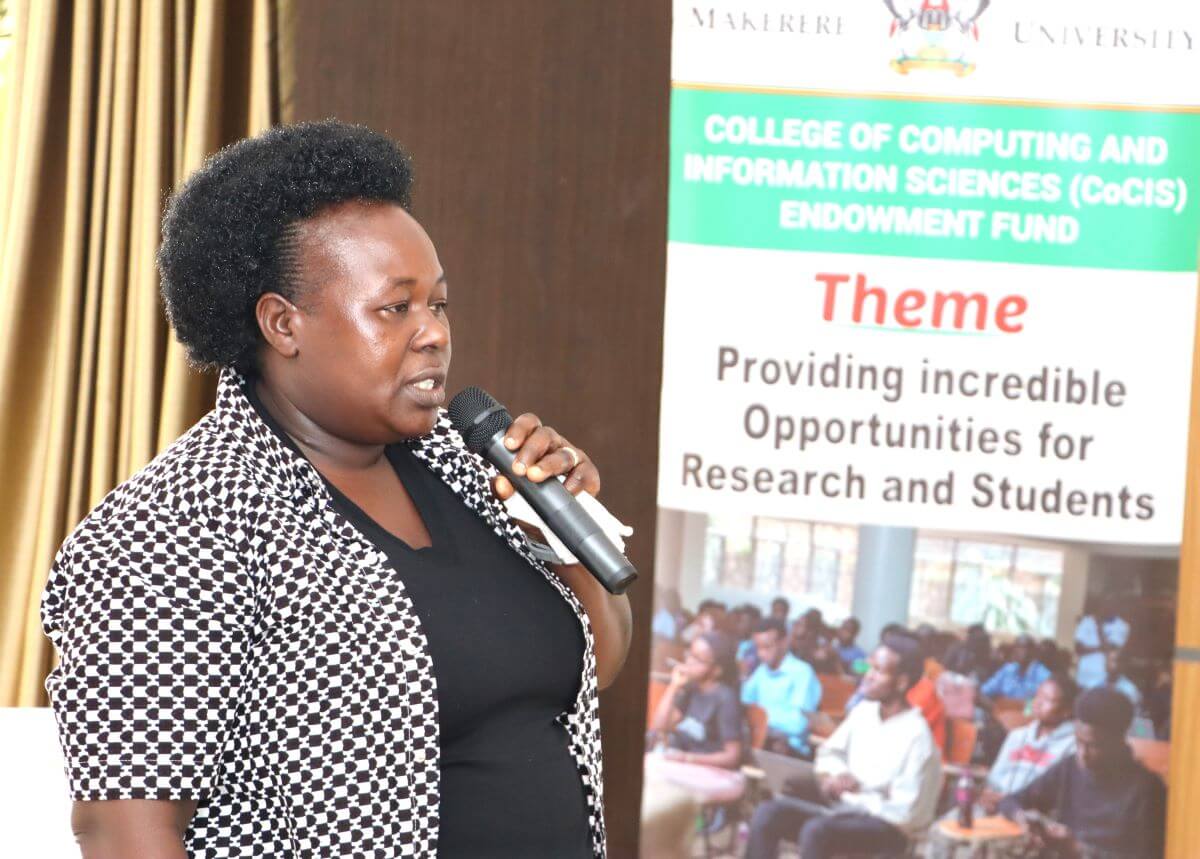
The research agenda is aligned with the university’s strategic plan and aims to address national and continental development priorities. Dr. Kaddu stressed the importance of addressing burning social, economic, and technological needs in Uganda and East Africa. The school is also committed to producing research that is transformative in social and economic imaginations of the country and Africa.
The key highlights of the research agenda include thematic areas such as information governance and digital transformation, indigenous knowledge and culture informatics, wellness and health informatics, digital literacy and education, and transparency, accountability, and legal records.
In his closing remarks, the Deputy Principal of the College of Computing and Information Sciences, Dr. Peter Nabende, expressed gratitude over the presentation on the CoCIS Endowment Fund, recognizing its significance in advancing College’s progress.
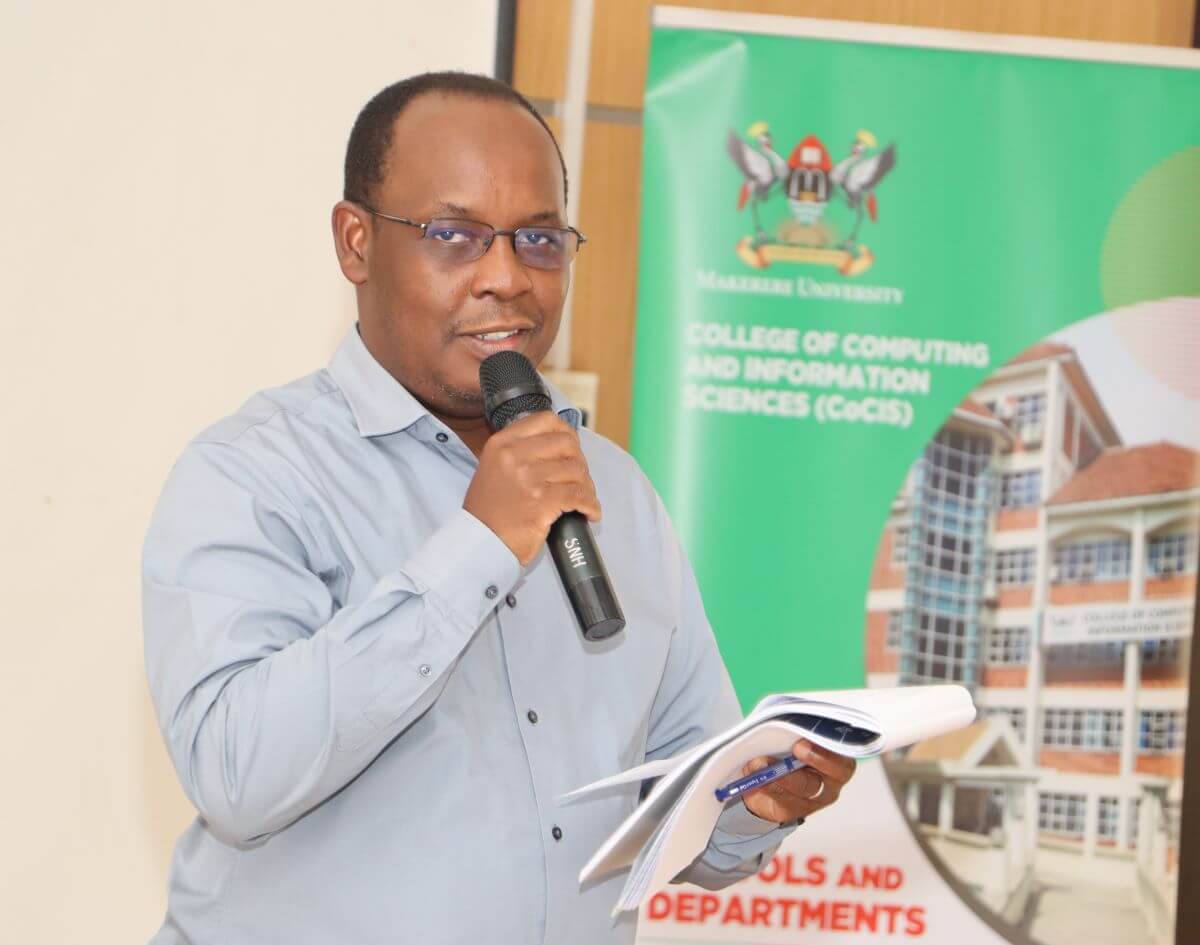
He encouraged colleagues to explore high-risk investments in their field and appreciated the emphasis on research areas. Dr. Nabende also acknowledged the college’s achievements, expressing pride in the team’s work.
Nabende called upon colleagues to write presentations and share knowledge citing the importance of interdisciplinary research.
“We have the capability to learn from each other and move forward,” he stated.
The Deputy Principal called upon the college alumni, staff and well wishers to contribution to the CoCIS Endowment Fund that will be pivotal in providing sustainable support to students, research, and innovation initiatives.
‘We urge you to consider contributing to the endowment fund and becoming part of this noble endeavor. Every contribution, big or small, counts, and we look forward to your support.’ Nabende appealed.
Beyond the Launch to Fun Activities
Staff were treated to a cocktail and barbecue dinner as well as fun activities including surfing River Nile. Besides formal work tasks, retreats offer significant benefits like fostering stronger team cohesion through informal interactions, boosting employee morale and reducing stress through a change of scenery, and enhancing communication and collaboration skills in a relaxed setting.
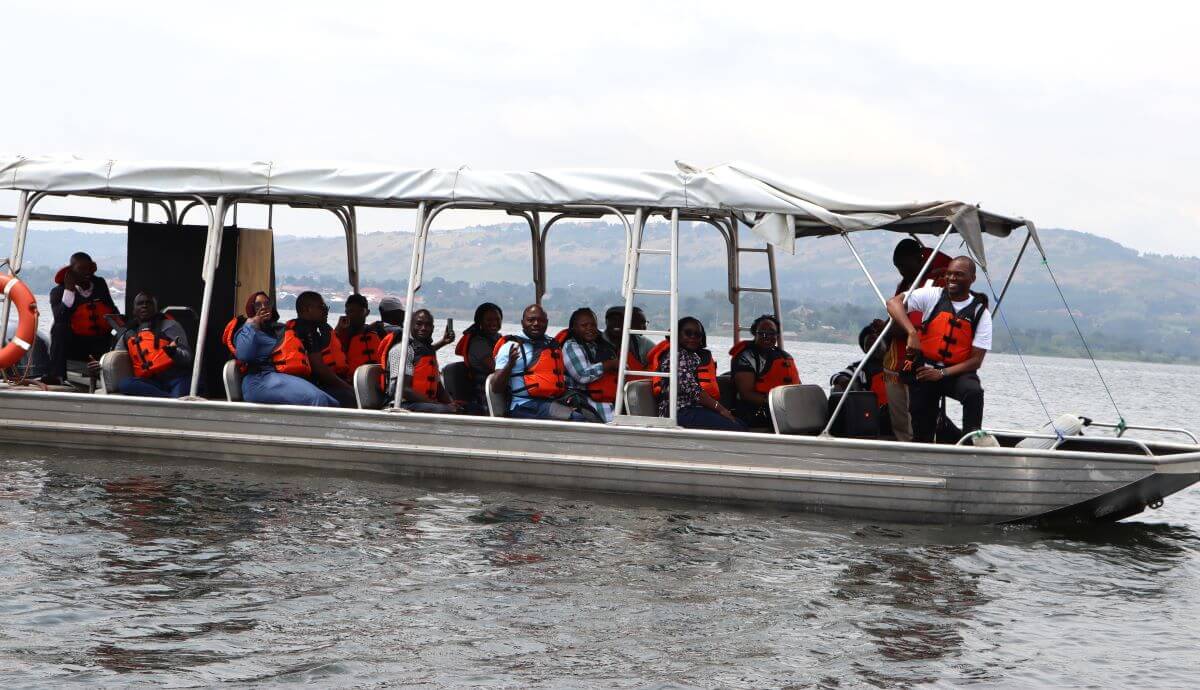
These retreats also provide opportunities for leadership development, allowing employees to step outside their typical roles and showcase new skills. Furthermore, retreats can reinforce institutional culture, values, and mission in a memorable and impactful way, leading to increased employee engagement and a stronger sense of belonging.
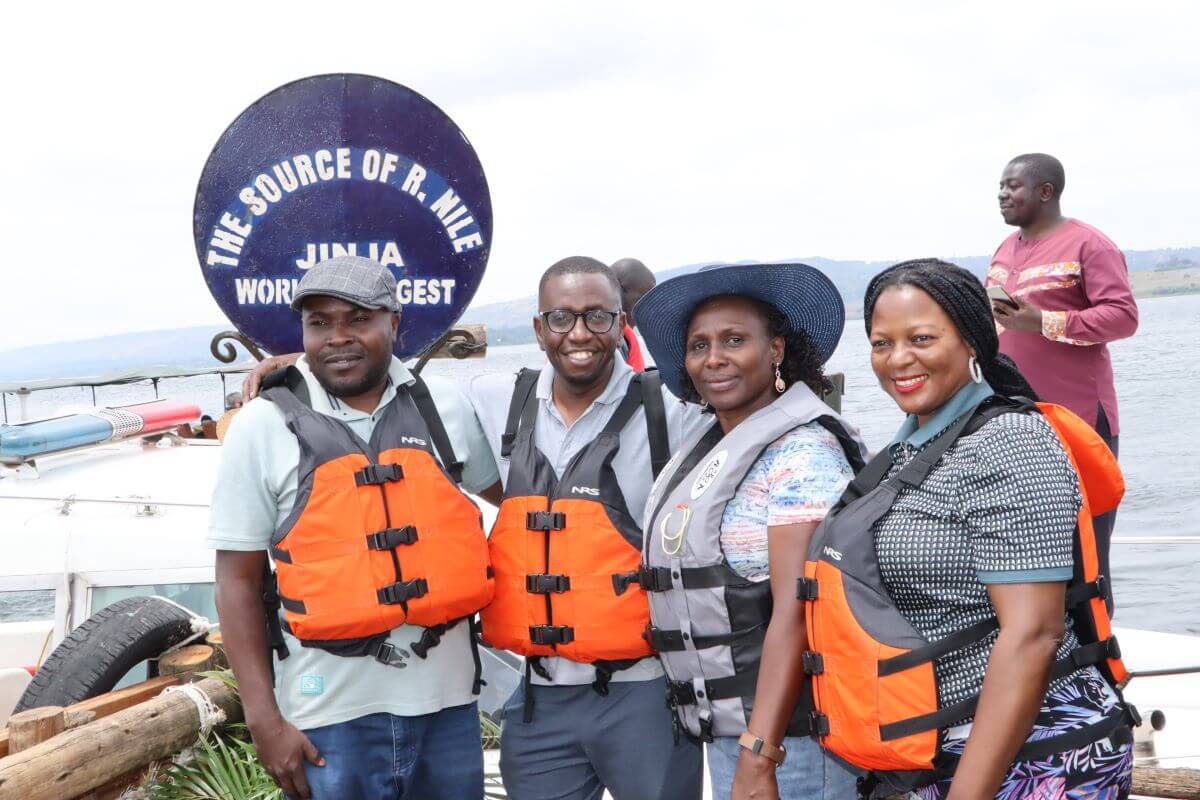
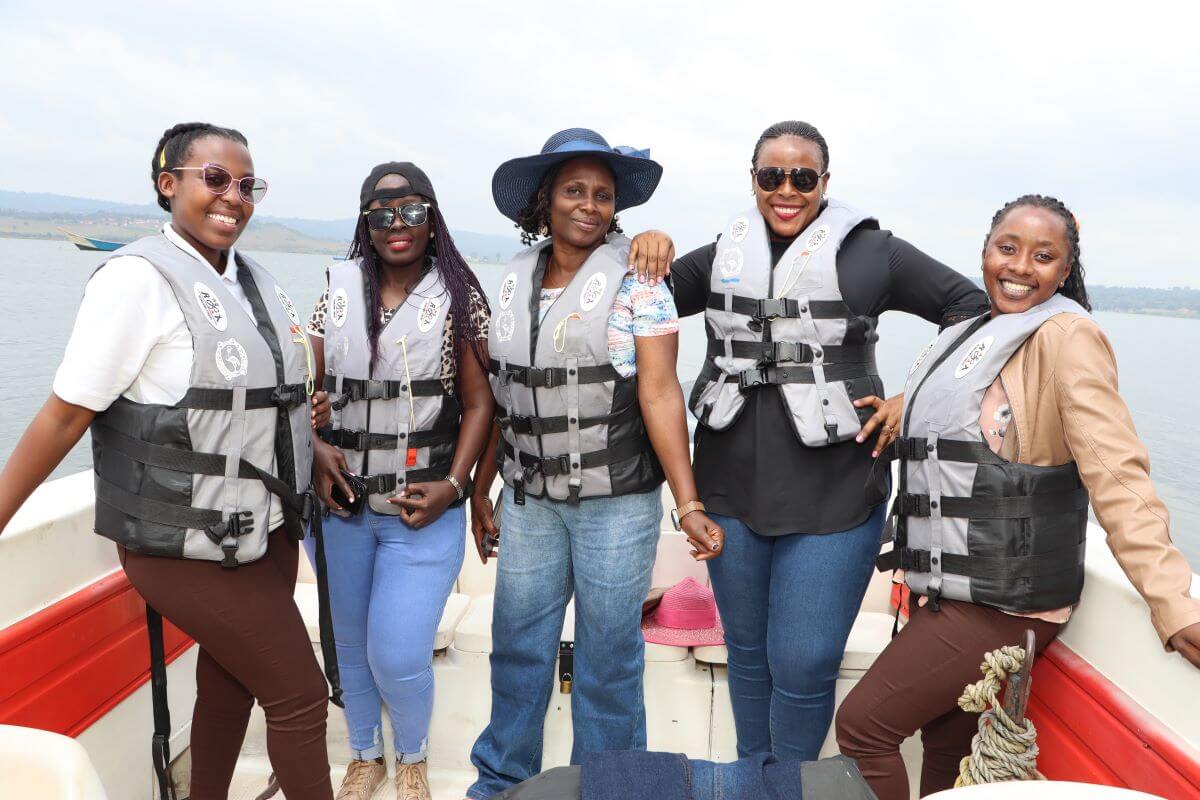
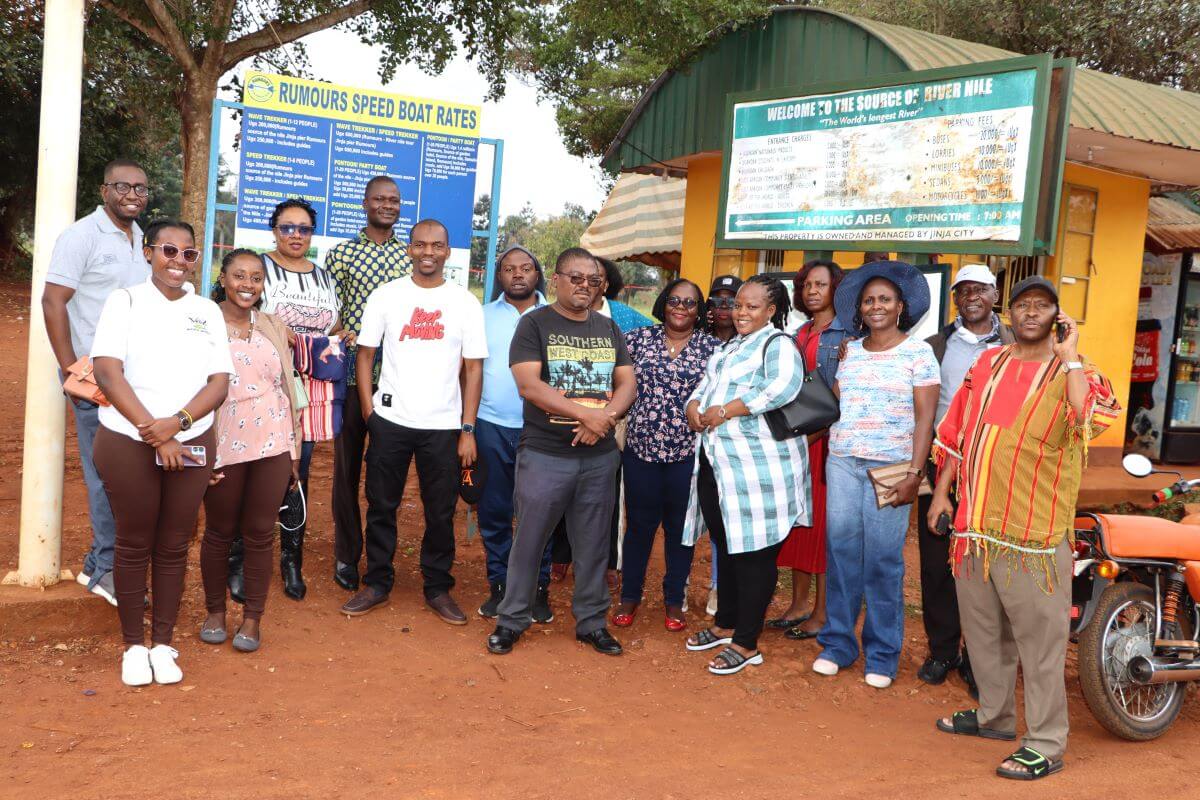

Compiled and written by
Julius Tukacungurwa Mugaga and Jane Anyango
